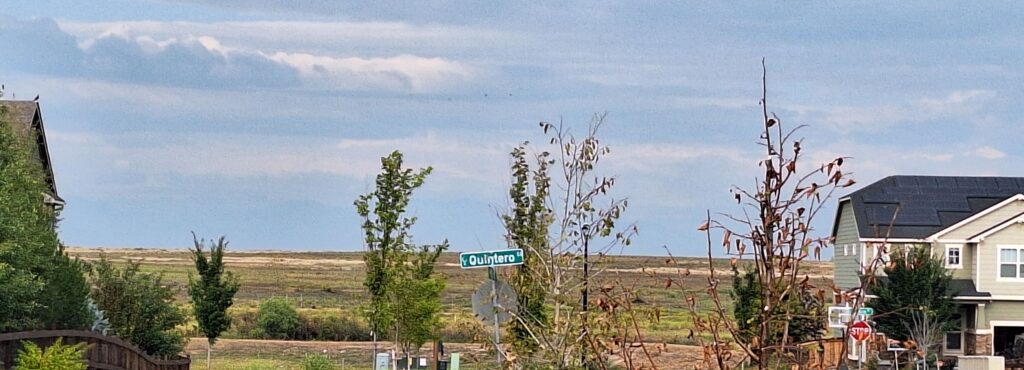The air quality all week was horrible due to wildfire smoke that blew into Colorado’s Front Range.
Here’s a picture looking to the west this morning:

There are supposed to be Rocky Mountains in this view!! Snow capped Rocky Mountains.
Some of the wildfires creating this smoke are in Colorado. There are also wildfires burning across the American west – and all over Canada.
The droughts, the altered rainfall patterns, these consequences of air pollution are forecast only to increase. Because the air pollution that causes these maladies continues to increase. This, when we need to be racing to zero air pollution.
The effect on all of us is a massive public health crisis.
If you live in Colorado and you’ve been coughing and wheezing and not feeling well, it very well could be the air quality.
Key Protection Measures
Stay Indoors
- Remaining indoors is one of the most effective ways to reduce exposure to wildfire smoke.
- Keep windows and doors closed and avoid outdoor activities, especially exercise, when smoke is present.
HVAC and Air Filters
- Use the highest-quality filter your HVAC system can handle (MERV 13 or above) to reduce indoor particulate pollution.
- Regularly change HVAC filters to maintain effectiveness during prolonged smoke events.
- If possible, run the HVAC system on recirculation mode to prevent intake of outdoor air.
- Portable HEPA filter air purifiers provide additional protection, especially in bedrooms and central living areas.
Create a Clean Air Room
- Designate a room in the home to keep especially clean by sealing windows, and use a portable air purifier or box fan with a high-efficiency filter.
Masks and Outdoor Activity
- Wear a properly fitted N95 respirator if outdoor exposure is unavoidable; simple cloth masks do not protect against fine smoke particles.
- Limit outdoor time and strenuous activity during heavy smoke periods.
Vehicle and Other Tips
- When driving, keep windows closed and set the air conditioning to recirculate.
- Avoid activities such as vacuuming or burning candles, which increase indoor particle levels.
Special Considerations
- Older adults, children, and people with respiratory or cardiovascular conditions are at higher risk and should take extra precautions.
- Monitor local air quality advisories for updates and recommendations.
Implementing these steps substantially protects against the health hazards posed by wildfire smoke across Colorado.
Stay safe. And support politicians and policies that advance clean air!
Leave a Reply